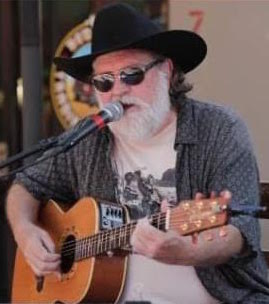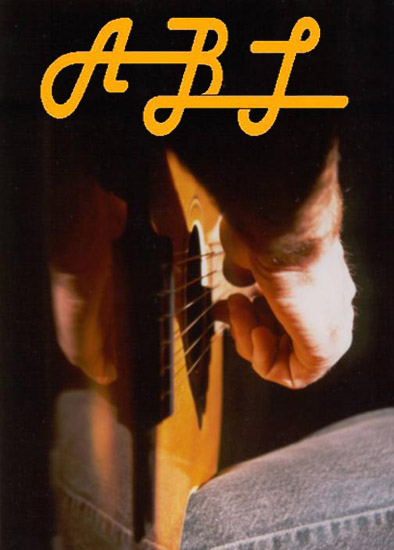There is a songwriting tips page on Colorado Sandstorm Music. A new one is added each week. Some of the tips refer to lyrics, some to music, some to attitude, some to general knowledge, some to inspiration.
Since I have been overwhelmed with an abundance of opportunities right now, and some of those may turn into a future column (or 3), I'm short of time.
So, I'll use some of the songwriting tips for lyrics here this month. Next month's column will be on songwriting tips for music.
"Read a lot." — Chuck Cannon
"Read all Hank Williams lyrics." — Chuck Cannon
"The only way you develop a language is by using it a lot." — Chuck Cannon
"Learn to write simply." — Chuck Cannon
"Hard rhymes help people remember your song." — Chuck Cannon
"Hard rhymes are important. ... Hard rhymes are a tool, not a rule. ... I'm not going to sacrifice what I mean to say on the altar of hard rhymes." — Chuck Cannon
"Be careful asking questions in a song. You can't answer them. It's confusing to the listener to switch characters." — Rob Hatch
"Don't change the timing to get the rhyme." — Rob Hatch
"Someone once told me, 'Don't build a bridge over a puddle.'" — Rob Hatch
"Sheryl Crow said, 'The verse is for me. The chorus is for them.'" — Danny Myrick
"There's a saying in Nashville, 'Paint it; don't say it.'" — Danny Myrick
"A good song should tell a story in as few words as
possible. Self-editing includes the elimination of
unnecessary words, lines, verses. If you don't know how to do that, check
out 'Not Quite What I Was Planning' a collection of 6-word
memoirs by Smith Magazine, and Ridley Scott's global film making
competition, 'Tell It Your Way,' which limits films to 3 minutes
and 6 lines of dialog." —  Sandy Reay Sandy Reay
"Part of what you write in lyrics is what you don't write." — Steve Seskin
"If you use the same chorus in a song, it should get deeper each
time you repeat it." — Steve Seskin
"You write a song because you have something to say that's worth
saying." — Steve Seskin
"What I've
written in a song almost
always tells me what to
write next." — Steve Seskin
"When you
are 'finished' with a
good first-draft of your
song, always do a tense
check. Make sure that
your song is
consistently in present,
past or future tense. If
the tense changes, make
sure that the change is
appropriate and that the
shift is not confusing
or awkward. If the tense
is not critical to the
meaning of the song,
keep in mind that
present tense conveys
more immediacy than past
tense and can help to
put the listener 'in'
your song." — Ed Skibbe 
"Don't
overlook your song's
point of view. Plan A
should always be to
write your song either
in first ('I') or
second ('you') person.
This puts your song
directly in the head
of the listener and
lets them identify
with the people in the
song. Third-person
('he' or 'she') is
much more abstract and
requires the listener
to imagine another
person or even two
other people,
disconnected both from
them and from your
'voice'." — Ed Skibbe 
"Doodle.
Write random lists of
words or ideas or
phrases that pop into
your head. This keeps
the creative brain
pipes flowing, kind of
like leaving the water
running a trickle to
keep plumbing form
freezing. Later, the
words, ideas or
pictures might trigger
an idea for a song. I
find this to be
particularly
productive in
sensory-rich
environments, like a
public place. Places
that are good
'people-watching'
locations can be very
stimulating
creatively. You may
not be able to write
in this environment,
but your brain will be
going a mile a minute.
Don't waste the
energy." — Ed Skibbe 
"Keep it simple. We are
writing popular (we
hope!) songs, not great
American novels. When
songs get too complex,
especially lyrically,
the listener finds it
harder to relate to your
song and understand what
you are saying." — Ed Skibbe 
"This is profoundly true
if you are trying to
write 'hit' songs, but
it also applies even to
you 'true artists.'
Simpler songs have more
impact and a longer life
than complicated songs." — Ed Skibbe 
"NEVER take yourself or
your song too seriously.
You see, creativity
lurks in a mysterious
region of the brain
known as the
'Songwriter's Ganglion.'
This is a one-celled
structure located
immediately between the
reptilian brain and the
Three Stooges brain. So
keep it simple, keep it
fun and keep it at least
a little bit stupid and
you'll be fine." — Ed Skibbe 
"Keep your lyrics
conversational. One of
the items on your
'so-you-think-you're-finished'
checklist should be
'Would this person
really say that if we
were talking in real
life?'" — Ed Skibbe 
"Harlan Howard said
famously that a great
song is three chords and
the truth. Personally, I
don't care if you use
one chord or twenty
chords, as long as it
works, but you damned
well better tell the
truth. Stilted,
unnatural, grandiose,
convoluted or
pretentious language
rings false. It exposes
the artifice of the
song. This is the
problem I have with
Country music's penchant
for overly 'clever'
hooks. Far too often,
there is not enough song
there, just some guy's
idea of a clever twist
on words and barely
enough song to deliver
it." — Ed Skibbe 
"Keep things simple,
direct, honest and
clear. Stick to your
message and resist the
urge to play too many
semantical tricks." — Ed Skibbe 
"Think like a painter.
Develop your palette.
Some songwriters fall
into ruts, always
crafting songs out of
the same limited set of
parts. Try to spice up
your lyrics with words
that convey emotion, or
color or movement. Look
for adjectives that
don't necessarily fit
the noun, but add to the
meaning of your song.
For example, instead of
'blue neon,' say 'lonely
neon.'" —— Ed Skibbe 
"Read. Read about aongwriting and music. Read 'This is Your Brain on Music,' Pat Pattison's 'Writing Better Lyrics,' '88 Songwriting Wrongs and How to Right Them: Concrete Ways to Improve Your Songwriting and Make Your Songs More Marketable,' '101 Songwriting Wrongs and How to Right Them: How to Craft and Sell Your Songs,' songwriting books by Sheila Davis and Jason Blume, 'FutureHit.DNA' by Jay Frank. and Bob Lefsetz' blog." — unknown
"Even when there's not a joke or a hook, the first line has to be good and snap 'em to attention. Songs ain't novels. You don't have 30 pages to slowly wrap somebody in. They're more like short stories or poems. If the first line hasn't grabbed them, you won't get to the second line. Once you've developed an audience, you may have some luxury and trust, so you don't have to knock 'em over the head with line one." — Dan Bern, quoted by J. Poet in "Dan Bern: Just Getting Started," Sing Out! Autumn '11 / Winter '12
"Read articles, blogs, books, columns, comics, e-zines, magazines, etc. that feature word play. Google puns, shaggy dog stories, double entendres, spoonerisms, oxymorons, malapropisms, mnemonics, Tom Swifties, redundancies, ambiguities and paraprosdokians. Play with words. It may add creative adjectives and images to your song. It may even give you the hook for your song." —  Sandy Reay Sandy Reay
Thanks for visiting AcousticByLines. |


